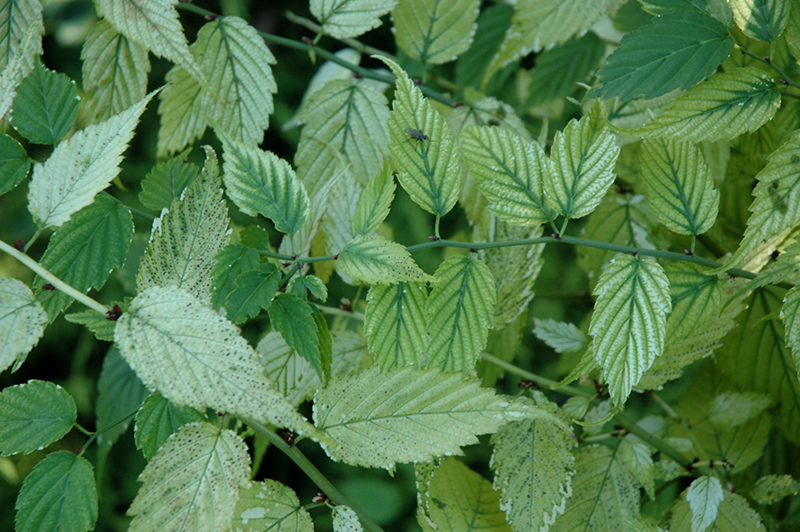Plant Finder
Geisha Japanese Kerria
Kerria japonica 'Geisha'
Height: 6 feet
Spread: 6 feet
Sunlight:
![]()
![]()
![]()
Hardiness Zone: 4
Description:
A colorful spring blooming shrub featuring bright yellow flowers on thin, green stems, with variegated green, yellow and white leaves; spreads by suckering to form a natural mass; use in borders, massing or foundation plantings; does best in part shade
Ornamental Features
Geisha Japanese Kerria features showy double gold button flowers along the branches from early to mid spring. It has attractive yellow-variegated dark green foliage with hints of white which emerges light green in spring. The serrated narrow leaves are highly ornamental and turn lemon yellow in fall. The smooth bark and lime green branches add an interesting dimension to the landscape.
Landscape Attributes
Geisha Japanese Kerria is a dense multi-stemmed deciduous shrub with a shapely form and gracefully arching branches. It lends an extremely fine and delicate texture to the landscape composition which can make it a great accent feature on this basis alone.
This is a high maintenance shrub that will require regular care and upkeep, and should only be pruned after flowering to avoid removing any of the current season's flowers. Deer don't particularly care for this plant and will usually leave it alone in favor of tastier treats. Gardeners should be aware of the following characteristic(s) that may warrant special consideration;
- Suckering
Geisha Japanese Kerria is recommended for the following landscape applications;
- Mass Planting
- Hedges/Screening
- General Garden Use
Planting & Growing
Geisha Japanese Kerria will grow to be about 6 feet tall at maturity, with a spread of 6 feet. It tends to be a little leggy, with a typical clearance of 1 foot from the ground, and is suitable for planting under power lines. It grows at a medium rate, and under ideal conditions can be expected to live for 40 years or more.
This shrub performs well in both full sun and full shade. It does best in average to evenly moist conditions, but will not tolerate standing water. It may require supplemental watering during periods of drought or extended heat. It is not particular as to soil type or pH. It is highly tolerant of urban pollution and will even thrive in inner city environments. This is a selected variety of a species not originally from North America.

